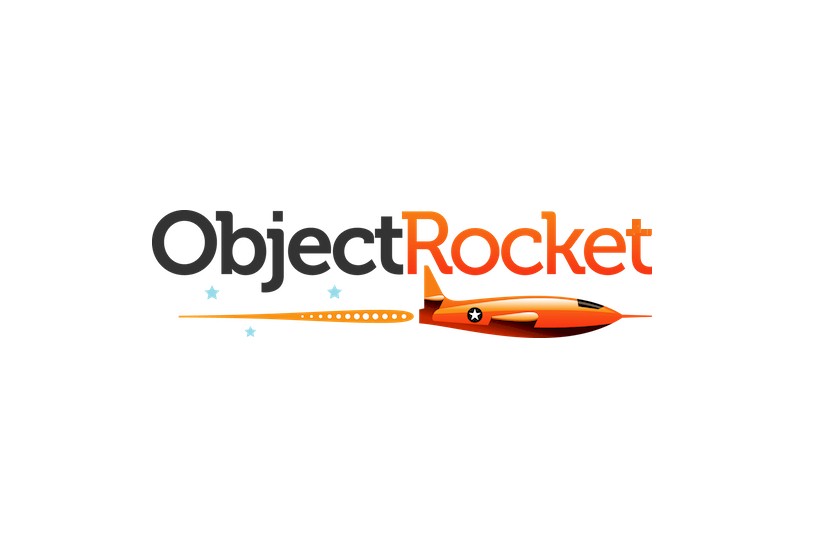This article is more than 1 year old
Former PayPal, eBay hackers strap a rocket onto MongoDB
NoSQL cloud runs on flashy hydrazine
If ObjectRocket told you all of the secrets behind its bespoke cloud for running the MongoDB data store super-fast, then it would have two choices: It would either have to kill you or hire you and make you keep the secret. Alternatively, you could just use the ObjectRocket cloud to host your NoSQL data and not care about how it manages to be faster than other clouds running MongoDB – and that is what ObjectRocket is counting on.
The startup was founded in February 2012 in Pleasanton, California by Chris Lalonde, Kenny Gorman, and Erik Beebe. Lalonde, who is CEO, was vice president of engineering at Canadian consulting company Ingenia Communications for many years and spent six years as senior director of information security at eBay before taking director of ops and IT jobs at Quigo and Meraki Networks (which Cisco just bought for $1.2bn).
Gorman, who is chief architect of the bespoke MongoDB cloud, scaled up databases at PayPal and then eBay and has been a heavy user of MongoDB in recent years, helping to scale up the Shutterfly photo sharing service using the open source data store as its director of data services. Beebe, who is ObjectRocket's CTO, was a systems engineer at eBay, Quigo, and AOL.
"We're pretty familiar with building out large-scale infrastructure," Lalonde tells El Reg. "We were trying to use MongoDB on various clouds, and we found it lacking because you are trying to run a database on top of infrastructure that is really designed to host Web applications. And so we decided to build our own."
The design of the underlying server hardware, networking interconnect, and Linux and MongoDB software stack is a secret, and after repeated cajoling and prodding from your faithful El Reg server hack, all that Lalonde would confirm is that the machines that support the ObjectRocket implementation of MongoDB are x86 gear and that it has no spinning disk and only has flash storage for holding customer data.
ObjectRocket has tweaked the Linux kernel, its network stack, and MongoDB itself to goose the performance of the NoSQL data store, that much Lalonde will admit. The company also does not use a server virtualization hypervisor to isolate customers and their data from each other, but has a different and somewhat proprietary means of guaranteeing security, performance, and isolation of MongoDB data stores on its cloud. Our guess is a mix of SE Linux and Linux containers, but ObjectRocket is not saying.
Lalonde adds that ObjectRocket has two different service providers providing connectivity into its cloud – AboveNet and Level 3 – and that it has hosted its servers and switches in two Equinix data centers – one in San Jose, California and the other in Ashburn, Virginia. And using the Amazon's Direct Connect service, you can be 1 to 2 milliseconds away from the Amazon Web Services cloud.

If you want to know more than that, you are going to have to use thumb screws, water-boarding, or some other means of persuasion.
What ObjectRocket is happy to talk about, as it uncloaks from stealth mode to begin peddling its bespoke MongoDB cloud service, is that it can beat other cloudy implementations of the MongoDB NoSQL database, with the ability to handle 60,000 reads per second and 20,000 writes per second, which Lalonde says is at least twice as fast as Amazon Web Services can run MongoDB because of its "server virtualization challenges," as he put it.
The ObjectRocket service has built-in MongoDB management and scaling, too. It automagically creates three independent and replicated shards for data availability and performance, and the shard size can be scaled up to as high as 1TB if need be. Lalonde says that the largest customer he knows of in production has hundreds of shards for storing unstructured data, and that ObjectRocket could handle the workload.
The ObjectRocket service is built on top of the MongoDB 2.2.1, and the base Standard plan comes with three 1GB shards that can be expanded up to four shards for a cost of $29 per month. The larger Standard plan has 5GB shards and costs $149 per month. The Pro edition of the ObjectRocket service comes with shards that are 20GB, 50GB, 100GB, 250GB, and 500GB in size, which means the company is using some pretty hefty flash storage inside of its servers.
The Standard and Pro editions assume that you are sharing the underlying server architecture and only need weekly backups, but the Enterprise edition of the ObjectRocket service adds in dedicated iron and phone support, has shards of 250GB or 500GB in size, and does daily backups.
Shard sizes above 500GB and more frequent backup schedules are available if you want to go custom. Pricing for the Pro and Enterprise plans was not released.
ObjectRocket has been in beta testing since the summer, and went into production in October. The company ported a bunch of customers to the production environment and made sure everything was hunky dory and now is ready to accept both your NoSQL data and your money.
Lalonde says that customers who have been testing the ObjectRocket service are generally in the Amazon cloud or in an Equinix data center, so moving unstructured data over to ObjectRocket is not a big deal and does not introduce unacceptable latencies. (Amazon's cloud itself is in an Equinix data center in Ashburn.)
ObjectRocket is looking at plunking its home-grown MongoDB setup into other cloud providers in North America and will be looking to expand into Europe this year and into the Asia/Pacific region in 2014.
ObjectRocket raised an undisclosed amount of angel funding, which Lalonde says is sufficient to get it into 2014, and that the next round of Series A funding is "well under way." ®
